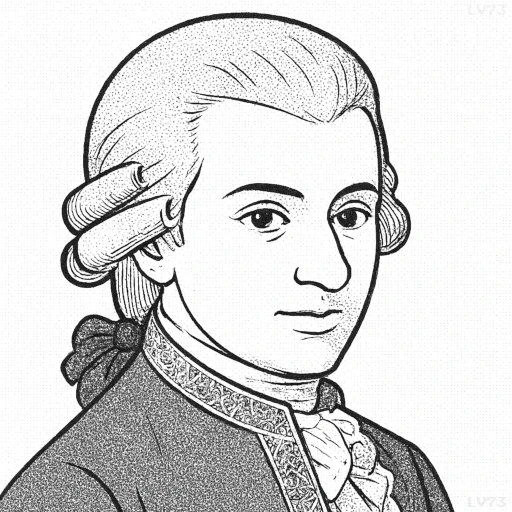“The happy medium – truth in all things – is no longer either known or valued; to gain applause, one must write things so inane that they might be played on barrel-organs, or so unintelligible that no rational being can comprehend them, though on that very account, they are likely to please.”

- January 27, 1756 – December 5, 1791
- Born in Salzburg (Austria)
- Composer
table of contents
Quote
“The happy medium – truth in all things – is no longer either known or valued; to gain applause, one must write things so inane that they might be played on barrel-organs, or so unintelligible that no rational being can comprehend them, though on that very account, they are likely to please.”
Explanation
In this quote, Mozart laments the decline of truth and balance in art, expressing frustration with the superficiality of contemporary tastes. He observes that in order to gain applause or recognition, artists must either produce works that are so simplistic they resemble the repetitive tunes of barrel organs (mechanical, easy entertainment), or create works so obscure and complex that they are practically incomprehensible. This critique reflects Mozart’s belief that art should maintain a sense of integrity and clarity—it should be true to its expressive potential, rather than relying on superficial popularity or artificial complexity. The idea of art becoming a mere vehicle for applause at the expense of substance was a sentiment that echoed through many periods of history, including Mozart’s own time.
Historically, this quote can be viewed in the context of the musical and cultural climate of the late 18th century, when composers were navigating the pressures of patronage, audience expectations, and the growing influence of the public. Mozart’s music often bridged the gap between elegance and innovation, but he also faced a system where artistic success could be defined more by popular taste than by genuine artistic merit. His frustration with this trend points to his desire for authentic artistry rather than chasing cheap praise or shallow popularity.
In modern times, this critique remains relevant in the discussion of popular culture and mainstream entertainment, where there is often pressure to create content that is either easily consumable or deliberately complex in a way that alienates the audience, both for the sake of trendiness or artistic elitism. Mozart’s quote encourages us to seek a middle ground—a place where truth, clarity, and creativity coexist—reminding both artists and audiences of the importance of balance and authenticity in art. His words serve as a timeless reminder that art should aspire to elevate, not merely to pander or mystify for the sake of applause.
Would you like to share your impressions or related stories about this quote in the comments section?



